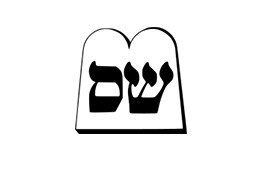Shas


Shas (an acronym for "Shomrei Sefarad," the "Sephardic guardians") was established as a party in 1984, before the elections for the 11th Knesset. Shas was founded by ultra-Orthodox Sephardic Jews in response to their sense that they were at an institutional disadvantage and were under-represented in Israeli politics in comparison to Ashkenazi Haredim. With the establishment of Shas on the national level, the Council of Torah Sages, headed by Rabbi Ovadia Yosef, was also established. Rabbi Menachem Shach, the head of the Lithuanian (non-Hasidic) ultra-Orthodox community, and Rabbi Yosef, served as the Council's highest decision-makers. After 1990, Rabbi Shach resigned this position, leaving Rabbi Ovadia Yosef as the sole spiritual leader of the Shas party.
At the height of its power, Shas received 17 Knesset seats following the 1999 elections. In the next four elections it won 11-12 seats. The death of Rabbi Yosef was among the factors for its weak performance in the 2015 elections - only 7 seats. The party rebounced in the two elections of 2019, winning 8-9 seats.
Shas champions "returning the crown to its former glory" (i.e., restoring the prestige of the traditional Sephardic community) and the promotion of social justice. The movement believes in the existence of the State of Israel as the state of the Jewish people and aspires to gather Jews from throughout the world in Israel. In terms of its security-political position, Shas supports arriving at peace agreements with the Arab states while preserving the security of the residents of Israel, but is opposed to the division of Jerusalem. In a series of Knesset votes on key diplomatic issues, however, Shas took a hawkish political stance.
| Election Year | Votes Count | Number Of Seats | Share Of Votes | List Of Candidates | Platform |
|---|---|---|---|---|---|
| 2022 | 392,964 | 11 | 8.2 |
Candidates
|
|
| 2021 | 316,008 | 9 | 7.2 |
Candidates
|
|
| 2020 | 352,853 | 9 | 7.7 |
Candidates
|
|
| September 2019 | 330,199 | 9 | 7.4 |
Candidates
|
|
| April 2019 | 258,275 | 8 | 6.0 |
Candidates
|
|
| 2015 | 241,613 | 7 | 5.7 |
Candidates
|
|
| 2013 | 331,868 | 11 | 8.8 |
Candidates
|
|
| 2009 | 286,300 | 11 | 8.5 |
Candidates
|
|
| 2006 | 299,054 | 12 | 9.5 |
Candidates
|
|
| 2003 | 258,879 | 11 | 8.2 |
Candidates
|
|
| 1999 | 430,676 | 17 | 13.0 |
Candidates
|
|
| 1996 | 259,976 | 10 | 8.5 |
Candidates
|
|
| 1992 | 129,347 | 6 | 4.9 |
Candidates
|
|
| 1988 | 107,709 | 6 | 4.7 |
Candidates
|
|
| 1984 | 63,605 | 4 | 3.1 |
Candidates
|
Note that the candidates and platforms in this table are in Hebrew.
Yitzhak Peretz, Aryeh Deri, Eli Yishai, Ariel Atias
Shas was included in the government for the first time in the national unity government formed after the 1984 elections. The first Shas members to serve as ministers were Yitzhak Peretz and Aryeh Deri. In 1990, Prime Minister Yitzhak Shamir formed a narrow government in which Shas had three ministers, with Raphael Pinchasi joining Peretz and Deri. After the change in government in 1992, Shas entered the government of Yitzchak Rabin, with Aryeh Deri serving as a minister. Deri resigned from the government in September 1993, after the signing of the Oslo Accords, when an indictment for fraud was brought against him. Shas then remained outside the government until the election of Binyamin Netanyahu as prime minister in 1996. Two members of Shas served as ministers in the first Netanyahu government – Eli Yishai and Eli Suissa. In the wake of Shas's success in the 1999 elections, the party joined the coalition headed by Ehud Barak and received four cabinet positions. Shas left the coalition due to disagreements with Meretz and Barak's participation in the Camp David Accords. After Ariel Sharon's victory in the 2001 elections, Shas joined his first government. After the 2003 elections, however, Shas chose to remain in the opposition rather than to sit in the same government as the Shinui party. Shas returned to the coalition headed by Kadima, with four of its members serving as ministers in Ehud Olmert's government. Shas also had this level of representation in the second Netanyahu government. Shas did not join Benjamin Netanyahu's 3rd government but returned to his 4th government (took office in May 2015), receiving two ministerial positions.